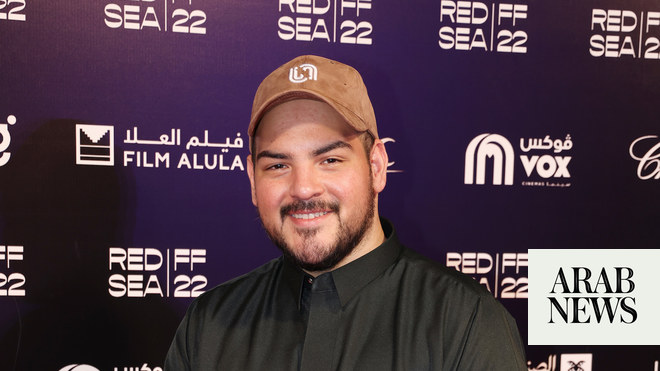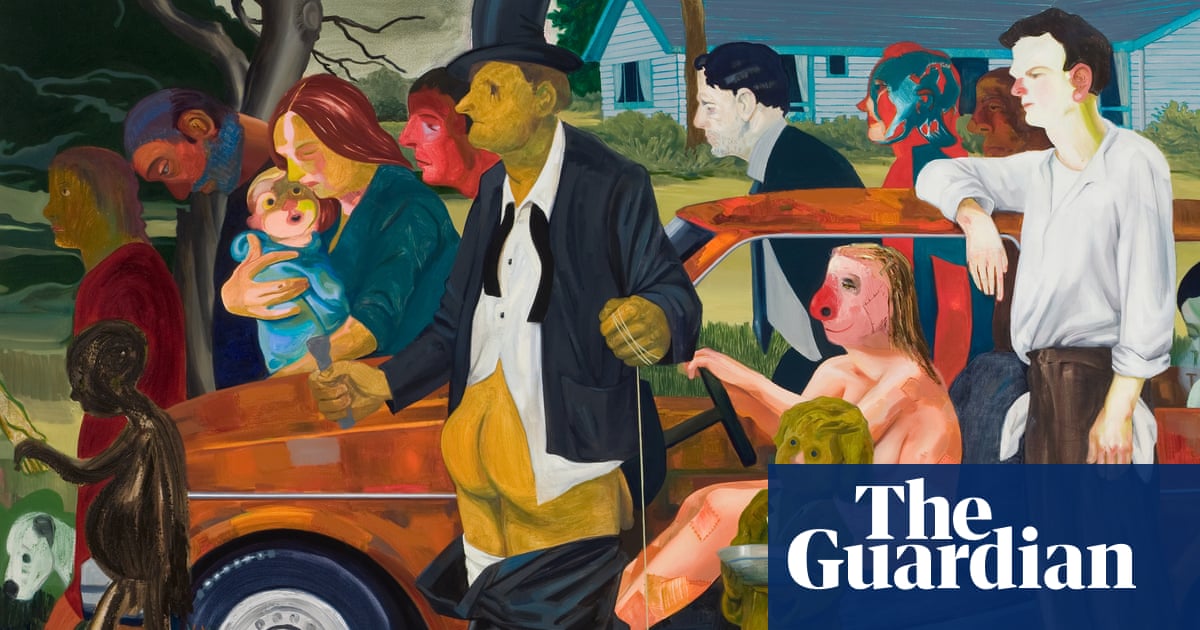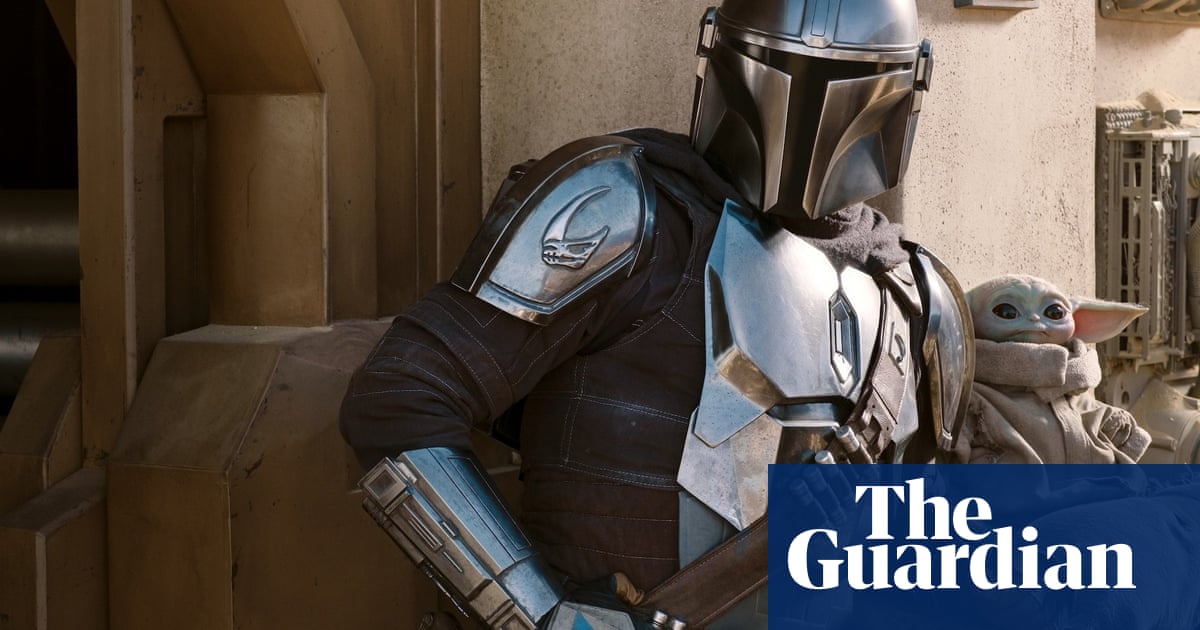
It was 1976 when Kiran Shah saw the advert that would change his life. “It was a sci-fi film looking for a little guy,” he says. Shah turned up at Elstree Studios in Hertfordshire and was introduced to a nervous young man named George Lucas. “He said: ‘Can you get in that dustbin thing?’ I was a bit too tall for it but I got in, they put the lid on, and he said: ‘Can you look left, look right?’” Shah didn’t realise he was auditioning for the role of R2-D2 in Star Wars. He didn’t get the job – it went to Kenny Baker – but Lucas’s casting director liked Shah, and got him an agent, which set him on the path of an almost 50-year career as “the world’s shortest stuntman”.
There are very few blockbusters Shah has not been in. You might not recognise him – he is often doubling for another character or he’s disguised under prosthetics as a mythical creature. But he has played more Star Wars characters than he can count, doubled for every hobbit in The Lord of the Rings movies, did Christopher Reeve’s stunts in the Superman movies, and played every single child in Titanic (which is even more impressive given that he can’t swim).
He has also worked with just about every blockbuster director out there: Lucas, James Cameron, Steven Spielberg, Peter Jackson, Ridley Scott, Terry Gilliam, JJ Abrams. Shah’s stature (he is just under 4ft 2in, or 126cm, according to Guinness World Records), combined with his fearlessness, have helped him find a niche in cinema that has led to an absurdly storied career, not to mention an MBE last month for his services to the film industry.
His favourite experience was working on Superman in 1977. He and his friend Milton Reid (a former wrestler) decided to visit Pinewood Studios one day, looking for work. The director, Richard Donner, showed them on to the Superman set and introduced them to Marlon Brando. “Marlon immediately picked me up and started dancing,” says Shah. “I don’t know why he did that. And I’m going: ‘Marlon, please put me down, I don’t like being picked up.’ He finally put me down and then in walked Reeve, and Donner went: ‘Christopher, I’ve found a stunt double for you!’ and pointed at me. The entire crew were bursting with laughter.”
Donner wasn’t joking, though. For the movie’s flying scenes, the effects team used an array of stunt doubles of different sizes, down to Shah, so they could realistically portray Superman flying through the back-projected cityscape at all distances. Thus, Shah found himself in the iconic Superman costume (and a Christopher Reeve mask), winched up high in the air on wires and swung around for several days with his fist extended in front of him. “It was really brilliant,” says Shah, smiling. “I felt like: ‘I am Superman now!’” He and Reeve got along well, he says. “I used to smoke cigarettes back then, and Christopher was not allowed to smoke. He would come to me and go,” he lowers his voice, “‘Kiran, have you got a cigarette? Let’s go and find a corner.’” It must have been quite a sight: 6ft 4in Reeve and Shah, both in their Superman costumes, sneaking a smoke like naughty schoolboys. “The tall one and the small one! Nobody took a photograph, luckily.”
Looking back on his career, Shah, 67, says modestly: “I’ve been very lucky.” We meet at the Guardian offices in London; he is here with his nephew Kit, who is also his assistant. Shah never wanted to do anything apart from acting, he says. “When I was about six or seven, I used to take the mickey out of my uncle. I’d replicate his movements and mannerisms but make it bigger and funnier, and people would laugh. I thought: ‘Yeah, I want to go into the movies.’”
At this stage, much of Shah’s Indian-diaspora family was living in Nairobi, Kenya, where he was born. They were not wealthy, but they were happy, he says: his father ran a textile shop and his mother made saris. But in 1965, when Shah was 10, his father had a stroke. Two years later, the family relocated to Mumbai, India, for his father’s health.
By this time, Shah had almost stopped growing due to a hormone deficiency. He credits his parents for helping him come to terms with his condition. “They never, ever pointed out ‘you’re different’ or anything. They said: ‘You are like any other kid, you can do whatever you want to do, play with other kids, be like other kids.’ So I didn’t even think about it. That was a good thing, not having a chip on your shoulder.” He played football and cricket, and devoured films, mostly westerns and Bollywood, whenever he could.
Shah’s height became more of an issue when the family moved to the UK in 1973 and he started school in Feltham, west London. “The kids who were white, brown and black were all picking on me … like picking me up and throwing me to each other and all that stuff.” An unlikely protector came in the form of a young skinhead kid, who saw he was being bullied and persuaded the local skinheads to protect him. “Maybe they felt sorry for the little brown kid,” he says. “They protected me for a few weeks, then the head of the skinheads turned to my classmates and said: ‘You guys look after him now, and if there’s any problem, we’ll sort it out.’”
Shah’s acting aspirations began to bear fruit when he auditioned for the Red Buddha Theatre company, founded by Japanese musician Stomu Yamash’ta, which was bringing his multimedia show The Man from the East – a fusion of prog rock and Japanese folk – to London. Yamash’ta taught him a lot, says Shah, who never studied drama. He was to wear a mask in the show, but couldn’t put it on until he had studied it, understood his character, and learned mime, juggling and other skills. The training has served him well ever since, he says.
Shah toured Italy with the Red Buddha troupe, but after that work was thin on the ground for a few years until he went to that fated Star Wars audition. A couple of weeks later, he was doubling for a child actor in a movie called Candleshoe, starring Jodie Foster and David Niven. Now over 18, he could do what child actors couldn’t: work longer hours, unaccompanied by an adult. One day Niven took him to one side. “He said to me: ‘You’ve got a twinkle in your eye, young man. I can see you are really hungry. Don’t be like me or the other actors who go and have a nap in their trailer between setups; keep looking and talking to people. You need to be learning what’s happening on the set – what everybody is doing and why.” Shah became friends with the stunt coordinator, Bob Anderson, who took him under his wing.
Shah says he was fortunate to come into the industry just as two things were happening. The first was that attitudes were changing. “From the beginning of the movies, little people were treated like freaks,” he says. “That happened in the 20s, the 30s, all the way to the 60s. We wouldn’t get that much work, and if we did, often it would be a freakish character. Then Terry Gilliam changed the whole perspective with Time Bandits.” Shah was cast in the 1981 adventure film but his scenes were cut (Gilliam later cast him in The Adventures of Baron Munchausen). But for the first time, Time Bandits gave prominent dramatic roles to actors with dwarfism, such as Kenny Baker and Malcolm Dixon. Now there are lots of them, says Shah: Warwick Davis, Peter Dinklage, Deep Roy.
The second development was the explosion of fantasy and sci-fi films, often Hollywood-backed, being made in Britain in the 1970s and 80s. Not only was there the Star Wars franchise (Shah continued working in them right up to 2022 spin-off series Andor), but The Dark Crystal, Legend, Krull, Raiders of the Lost Ark – Shah had multiple roles in all of these (he’s the boy who brings Indiana Jones the poisoned dates in Raiders of the Lost Ark).
Some jobs were more challenging than others. On Titanic, Shah stunt-doubled for all the children, which meant continuously falling and sliding off decks, being deluged by tons of water in the corridors and basically drowning in myriad ways, all while not being able to swim. Shah had worked with the director James Cameron before, on Aliens (he doubled for Newt, the little girl), and had managed to stay on the right side of the notoriously volatile director. On Titanic, he was not so lucky. “I got a few bollockings from him,” he says, as a result of mistakes on set. One time, Shah was required to jump from the top deck of the ship but was wearing a safety strap that was too short. Cameron yelled: “‘Motherfucker! Why did you have to do that, you fucking idiot!’ I let it go.”
A few days later he was playing the little girl that Billy Zane carries on to the lifeboat in order to save himself. The boat was supposed to tip over and pitch the passengers into the water, but Shah didn’t want to be trapped under it, so he jumped off early. “I got another bollocking for that,” he says. They tried the shot again and again. By the fifth time, Cameron was losing his patience – and so was Shah. “I started arguing back. I said: ‘Don’t call me motherfucker, I’m not the motherfucker, motherfucker!’ Simon Crane [the stunt coordinator] came in and said: ‘What happened?’ And I said: ‘The motherfucker’s shouting at us.’” It was almost a mutiny, but the next day, miraculously, Cameron apologised to the stunt crew. “We tried again and got the shot in three takes,” he says.
A few years later, Shah got what he describes as “the best job I ever did in my life”: Peter Jackson’s Lord of the Rings movies, in which he doubled for Elijah Wood’s Frodo (again, disguised in a Frodo mask), and all the other hobbits at various stages. It was more than just being a body double, he says. He had to study Wood’s movements and mannerisms, to match up their characters. “You need to replicate everything, understand what the character is going through,” Shah says.
He had a whale of a time in New Zealand, marching through the landscape in his hairy hobbit feet, doing horseback stunts, sword fighting and boating down rivers with Viggo Mortensen (who found it hilarious that Shah couldn’t swim). He returned for Jackson’s Hobbit trilogy, too, doubling for Ian Holm. One time on set, he ran into Cameron, who was visiting. “He said to me: ‘Motherfucker Kiran! How are you?’ I go: ‘Motherfucker, I’m great!’ And he points to Peter and says: ‘Is this motherfucker looking after you?’”
Shah has so many of these anecdotes that there’s a strong urge to go through his CV film by film: playing an Ewok in Return of the Jedi, “The costume was really hot; when you put the head on everything misted up”; getting hung by the neck in Braveheart; being Tilda Swinton’s goblin assistant in The Chronicles of Narnia: the Lion, the Witch and the Wardrobe. He’s done plenty outside cinema, too: television comedy, music videos, working in nightclubs where he met a lot of rock stars: “Lennon, Paul McCartney, Eric Clapton, George Harrison, Pink Floyd …”
Did he do his share of rock’n’roll partying? “Yeah,” he says hesitantly. He looks to his nephew Kit and asks: “Can we talk about the other one?”
What other one?
“The biggest rock’n’roll party ever,” he says. This was one of Freddie Mercury’s legendary bashes, at Kensington’s Roof Gardens, some time in the mid-80s. “Freddie asked me: ‘Would you come and join my party? I’ll pay you.’” Shah had no idea what he meant. “He said: ‘I want you to meet and greet people.’ So I went, and I had to go into makeup first, and there were lots of people who were nude, being painted into rocks and trees and whatever. I said: ‘I’m not going to take my clothes off.’” In fact he was painted orange and dressed like a sultan, “in a suit and a turban with a hole in the top. I had no idea why the hole was there.” Just before the party started, a huge bowl of cocaine was placed in it. Needless to say, he was very popular with the guests. He won’t say who was there, though, or what went on. And no, he didn’t dip into his own supply, he insists. Because that’s not his thing, or because he was working? He smiles bashfully. “Something in between,” he says.
Shah still lives in Hounslow with his mother, his brother and sister-in-law – surrounded by memorabilia from his various adventures. He also writes poetry in his spare time. He’s slowed down a bit, and doesn’t do the more dangerous stunts, but “I’m still busy, still working,” he says, with the satisfaction of someone who has leveraged what could have been a disadvantage into a charmed life. “Things happened to me that shouldn’t have really happened, but they did,” he says. “And it’s been fun.”












